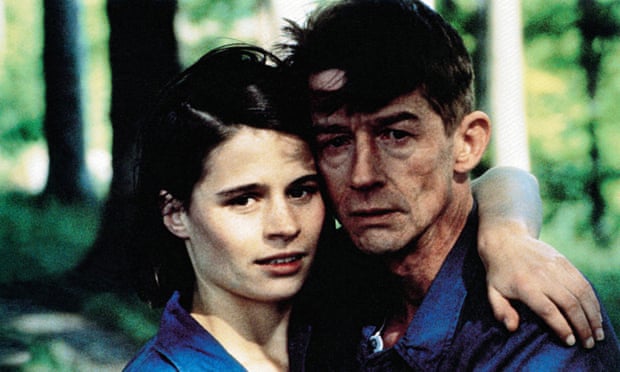American writer Sandra Newman’s novel Julia will tell the dystopian story from the perspective of Winston Smith’s lover
The estate of George Orwell has approved a feminist retelling of Nineteen Eighty-Four, which reimagines the story from the perspective of Winston Smith’s lover Julia.
Opening with one of literature’s most famous lines – “It was a bright cold day in April, and the clocks were striking thirteen” – Orwell’s 1949 novel is set in a dystopian future where Great Britain, known as Airstrip One, is part of the totalitarian state of Oceania. Big Brother rules supreme and the Thought Police stamp out any individual thinking. Winston Smith works at The Ministry of Truth, rewriting history to suit Big Brother’s narrative. He starts a forbidden affair with Julia – who works on the novel-writing machines in the Fiction Department - until both are captured and sent for re-education via Room 101.
In Julia by Sandra Newman, the incidents of Nineteen Eighty-Four are seen through the woman’s eyes. “It was the man from Records who began it, him all unknowing in his prim, grim way, his above-it-all oldthink way. He was the one Syme called ‘Old Misery’,” writes Newman. “Comrade Smith was his right name, though ‘Comrade’ never suited him somehow. Of course, if you felt foolish calling someone ‘Comrade’, far better not to speak to them at all.”
Publisher Granta said that Julia understands the world of Oceania “far better than Winston and is essentially happy with her life”. As Orwell puts it in Nineteen Eighty-Four, “in some ways she was far more acute than Winston, and far less susceptible to Party propaganda … She also stirred a sort of envy in him by telling him that during the Two Minutes Hate her great difficulty was to avoid bursting out laughing. But she only questioned the teachings of the Party when they in some way touched upon her own life. Often she was ready to accept the official mythology, simply because the difference between truth and falsehood did not seem important to her.”
“She has known no other world and, until she meets Winston, never imagined one. She’s opportunistic, believing in nothing and caring not at all about politics. She routinely breaks the rules but also collaborates with the regime whenever necessary. She’s an ideal citizen of Oceania,” said Granta. “But when one day, finding herself walking toward Winston Smith in a long corridor, she impulsively hands him a note – a potentially suicidal gesture – she comes to realise that she’s losing her grip and can no longer safely navigate her world.”
Orwell’s estate said it had been “looking for some time” for an author to tell the story of Smith’s lover, and that Newman, who has previously been longlisted for the Women’s prize and shortlisted for the Guardian first book award, “proved to be the perfect fit”.
Granta added that “Richard Blair, Orwell’s son, has been consulted and approves of the project”.
“Two of the unanswered questions in Orwell’s novel are what Julia sees in Winston, and how she has navigated her way through the party hierarchy. Sandra gets under the skin of Big Brother’s world in a completely convincing way which is both true to the original but also gives a dramatically different narrative to stand alongside the original,” said the estate’s literary executor Bill Hamilton. “The millions of readers who have been brought up with Orwell’s Nineteen Eighty-Four will find this a provocative and satisfying companion.”
Julia will be published after Granta releases Newman’s new novel The Men – in which every single person with a Y chromosome vanishes from the world – next June. It is the latest in a series of feminist retellings of classic stories, from Natalie Haynes’s reimagining of the Trojan war A Thousand Ships, and Pat Barker’s The Silence of the Girls, a version of the Iliad from the perspective of Briseis, to Maggie O’Farrell’s Hamnet, which centres on the life of Shakespeare’s wife, and Jeet Thayil’s Names of the Women, which tells the stories of 15 women whose lives overlapped with Jesus.




Replies